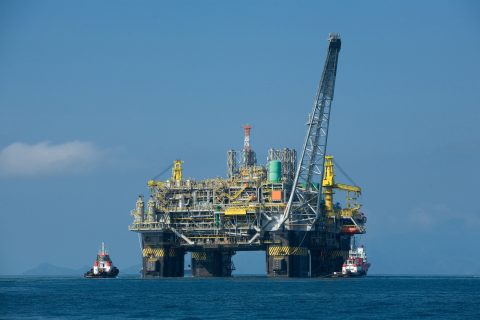
Oil prices may fall ahead of 2020, warns Rystad Energy
The oil market is going from gloomy to gloomier, warns Rystad Energy in a new market report. Increased production, economic recession, the ongoing trade war and IMO 2020 together may become a dangerous mix which could cause the oil prices to tumble.
Recent developments in the oil market “have sent cold shivers” through Rystad Energy’s oil market team, which now questions its own short-bullish view for the beginning of 2020.
“Economic recession risk and further escalation of the US-China trade war are key concerns in the near term. How long OPEC+ is willing to continue to manage production adds uncertainty,” says Bjørnar Tonhaugen, head of oil market analysis at Rystad Energy.
Rystad Energy’s current base case scenario doesn’t assume an imminent recession, but the analysts say they do observe troublesome indicators. While the Chinese economy continues to lag, most recently only posting a 6.2% growth rate, the US is also showing signs of deceleration. The further escalation of the trade war now adds more downside risk to the already moderate growth numbers and could impact oil demand as well.
President Donald Trump just last week decided slapped import tariffs of 10% on another USD 300 billion worth of Chinese goods to pressure the Chinese into making a trade deal, but Beijing responded by halting agricultural imports and allowing their currency to depreciate.
“Continued worsening of US-China trade relations could lower demand growth by 200,000 barrels per day (bpd) to 1.0 million bpd in 2020,” Tonhaugen observed.
Oversupply
While the oil demand remains weak and may weaken even further as result of the trade war, supply is actually growing faster than expected. Rystad Energy increased its 2020 field production estimates with another 0.5 million bpd to 97.6 million bpd. The growth is led by the US and followed by Norway, China and Canada.
OPEC production cuts have helped buoy oil prices so far this year, but there is plenty of production ticking up outside of OPEC nations, the analysts write. If OPEC+ does not extend or deepen their production cuts next year, 2020 may see exceptional growth of 3 million bpd or more in three quarters, the firm warns.
“We see a clear downside risk to 2020 prices due to excessive supply growth,” says Tonhaugen. “We still believe the market does not recognize the positive effect on crude demand that IMO 2020 will bring. However, if the IMO effect on crude demand is less than expected, OPEC intervention may be needed as early as the first quarter of 2020 to avoid imbalances in the oil market.”
Rystad Energy does expect demand growth will improve globally in the second half of 2019, but notes the recent exchange of US-China trade tariffs and overall weak manufacturing, exports and trade indicators elsewhere in the world could cap demand growth recovery if we see no trade deal in the immediate future. “Hence, the market may send oil prices downward before 2020,” Rystad concludes.
Rystad Energy will present its outlook for the oil & gas industry, including expectations for EPC contractors and shipping companies, at the Project Cargo Summit. This two-day international conference about the transport of large and heavy cargoes is organised by Promedia Group on the 11th & 12th of September, 2019 in Rotterdam. Interested in attending this dedicated project cargo and heavy-lift event? Book your tickets now at www.projectcargosummit.com.




